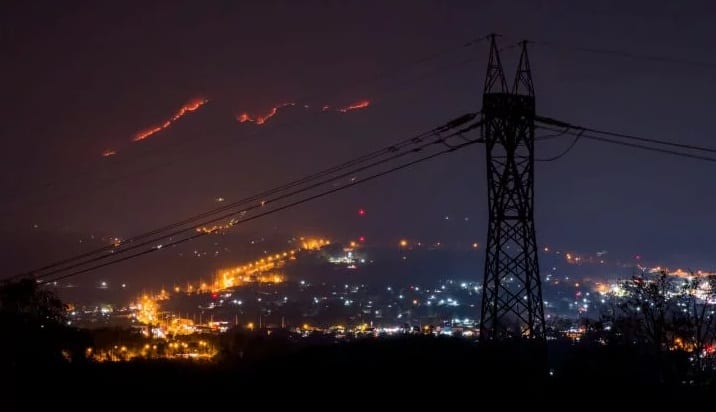The gobsmacking idea of turning California’s Pacific Gas and Electric into a cooperative has got me thinking about Prout’s vision of how major corporations and large-scale utilities could be converted into cooperatives. Mainstream economists argue that certain companies can operate efficiently only by becoming very large.
For example, an electric utility benefits from having an ever-growing number of users, which lowers the cost per customer in maintaining the company’s grid and operations. Yet critics point to a range of problems with power companies — escalating prices, lack of innovation, blackouts, and vulnerability to natural disasters, such as the wildfires that have crippled PG&E’s basic infrastructure and service delivery.
Progressive Utilization Theory (Prout), the economic model introduced in India by PR Sarkar in 1955, argues that maintaining large companies is vital for the greater economy — but must be under the ownership of local governments. In this view, a public power trusteeship would not charge a profit at market rates, but a price that covers just the cost of operation. This would provide an ample supply of kilowatts at the minimum possible cost to consumers. It is no different than the way that water and sewer systems are now operated in many communities.
So, are we ready for a public buyout of monopolies like PG&E? Will that ensure that corporations become accountable to the people who rely on them to produce and allocate electric power without violating the limits of the biosphere?
Corporations in the Crosshairs is the theme of a current blog by the Great Transition Initiative. The attached articles from this blog are thoughtful explanations of why the principle of corporate social responsibility has failed to gain traction. Allen White and Ruben Nelson show that instead of voluntary reforms, we must restructure our monolithic private companies and public service utilities. Nelson ends his piece by exhorting us to:
“learn to do the work that is logically prior – deepening our understanding of the adjacent futures we actually face, what our present condition is, how we got here and only then what range of responses are open to us and what they will require of us at every scale of our being as persons… …There is a franchise here for those who have eyes to see it and the capacity to act on their insights. But be warned, this is a moral franchise as well as societal one. Those who claim the moral high ground and do not (cannot yet) live up to its demands do not enhance their reputations. Given the crises we face, being well-intended and earnest is no longer enough. We need leaders who actually know what they and we are and what they and we are capable of becoming.”
It will take much more than a buyout plan to secure public safety, improvements to infrastructure, reliability in power delivery, green energy programs and low electric rates. Turning our massive power utilities into consumer-owned cooperatives will also require sustainability researchers, community planners, citizen advocates and public servants who understand that our economic and climate crises are deeply interdependent and are determined to address their root causes.
Click on image below to download/read Corporations In The Crosshairs: From Reform to Redesign
Wall Street Journal article Sonoma Index-Tribune article
Featured image at top courtesy of Greentech Media



